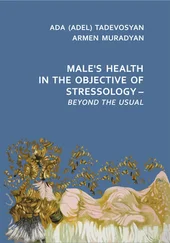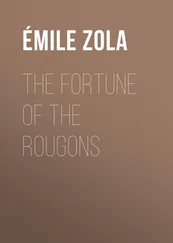Paul had tried several times to silence him, but his weak gesture of protest was caught up by the painter’s verbal torrent and drowned in a fresh wave of indignation, exclamations and curses. At several points he would have liked to get up from the table and flee, but a painful pleasure held him still: old doubts, old agonies, all his questions from sleepless nights, all his stupid writhing between belief and disbelief, all that standing guard of the jealous man who sees signs everywhere and certainty nowhere, everything, everything came together that night in an answer.
He returned home at daybreak, through the awakening, white morning streets, alone, stripped of any memory, of any hope.
He was on Calea Victoriei one day, in front of the Corso, when he felt that a well-known gaze was searching for him on the opposite sidewalk. He crossed the street, as if to call out, and discovered in a shop window, among numerous portraits of famous women, a photograph of Ann. She probably had it done before she left , he told himself. He stared at it for a very long time, as if he had truly seen her again after their long separation. In the photograph she was wearing a black, long-sleeved sweater that covered her throat. It looked like a tunic, although on the lefthand side, instead of a pocket, was a white initial, not superimposed, but rather worked into the fabric of the pullover: a triangular A, like the initial of a sports club. By contrast with the black sweater and the white thread, her hair looked twice as blonde, as though beneath a powerful morning light. It was the first photograph he had seen of her in which Ann was not smiling. Her lips were very slightly opened in an almost suppressed smile. Her head was tilted to one side in a gesture of attention and interrogation.
He had left the area with slow steps and had gone aimlessly up the street towards Nestor, stopping out of habit at the windows of the bookstores where he saw nothing, not a book title, not a magazine, but only that tilted blonde head, that A imprinted on the left breast, like a message addressed to him, like a whisper that only he could make out. He told himself that it was not completely impossible that in the rush of her departure Ann had had this photograph taken for him and had left it to be developed, perhaps with the secret thought that he would come across the photo here and would glimpse it, finding again in this photo the Ann of former times, so much did it seem to him that her dejected smile was for him alone. I’m a hopeless idiot. Now I’m even being seduced by photographs in shop windows.
Yet he had returned in the days that followed to see her. Something had changed when he had realized that her photograph was there in the window. He had the feeling of being less alone in this city, which had seemed so deserted until now. In the mornings, going out to work, he took with him that confused feeling of impatience he recalled from the days when they had made a date for an evening out or a long-awaited concert. He passed in front of the window several times a day, sometimes without the courage to toss more than a hurried glance towards Ann’s photograph — for he was afraid his persistence would be noticed, particularly in the evenings when the cafés along the street were full of people, and so many of the tables on the sidewalk were occupied by actors, painters and writers who were his acquaintances — but, at other times, halting, as though he had only that instant discovered her, with the full force of the event, he remained staring at her for a long time. He resorted to all sorts of tricks, which he masked with discomfort, to give his stopping in front of the window a normal, happenstance air, and not one of these tricks struck him as too naive, not the coin he feigned having lost and having stopped to look for, not the notebook pulled out of his pocket to jot down some fact he had just remembered, not the vague look with which he waited on a corner to cross an empty street.
On each occasion he returned with the fear that in the intervening time the photograph would have been removed from the window and replaced with one that was unfamiliar, and it was this fear, this emotion, with which, when Ann was in Bucharest, he had climbed the stairs towards her apartment, wondering whether he would find her at home. The smile in the window called out to him from afar, soothing, unchanging. It was a sad, hazy smile, as though she lacked the courage to open up any more than this. It was the Ann who regarded him with a tired shake of her head, with a despondent lift of her shoulders, as if to say to him: “Why do I even bother to talk to you? You don’t believe any of it, you don’t understand any of it…”
One morning Paul stood frozen on the sidewalk: the photograph was no longer in the window. The previous evening it had still been there — he had seen it — but overnight everything had changed. A new series of photographs had appeared behind the window pane: a few bridal photographs, a young officer in dress uniform, numerous chubby children, every type of unfamiliar face, which exchanged among themselves glances, smiles and greetings. Paul looked at it curiously, embarrassed, with an expression of confused enquiry, of the sort you have when you open the door of a compartment on a train and interrupt with your unexpected entry the family atmosphere which has grown up during hours of shared travel. “There isn’t a free seat,” the hostile silence around you says — and the photographs in the window were saying the same thing to him now, surprised by his insistent gaze. He was almost on the point of excusing himself (“Excuse me, it was a mistake, I was looking for someone”), he was ready to move away from there, although it was so difficult for him to give this up, when to the right of the window, as if it had hidden from him until now, barely containing its laughter, and now would have embraced him with an explosion of joy and tenderness, Ann’s face sprang into sight, a new face of hers, sufficiently different from the one he had left there the previous evening, that it wasn’t surprising that he hadn’t recognized it at first glance.
He used to feel this way often when he came to her apartment and, after ringing the doorbell, the door would open on its own, pulled by an unseen hand; he would cross the threshold, call out to Ann, look for her in every room, and only then would she leap out from the corner where she had been hiding, especially on days when she was wearing a new dress and wanted to surprise him by showing herself off to him in it. Now, too, in the photograph, she wore a new silk print dress in a floral design, while on her head she had an open, almost white straw hat that blended with her blonde hair, a hat with a wide brim for the sunlight in the country. Everything looked youthful, morning-like, but there was something sensual in her white arms, her bare throat, exposed even more by the movement of her head, which was tossed back slightly, as though to laugh in pleasure, for in this new photograph she was laughing, with a free, open laughter.
It was a completely different Ann than that of the evening before, who in her black sweater had looked like a pensive boy. Many times her facility for becoming a new person had troubled Paul. It was enough for her to change her hairdo, or dress in new colours, in order for something deep within her to appear to have changed, right down to the look in her eyes. There were innumerable possible Anns, and each left Paul feeling intimidated for a second, not knowing how to recover in this stranger the girl he loved, from whom he had parted the night before.
He found it difficult to get used to the new photograph in the window. He didn’t like this Ann who laughed and above all he didn’t like her head thrown back, with that recently adopted gesture of hilarity that emerged when she said: “It’s rolling, it’s rolling.” He passed before the window several times a day, as before, and, little by little, he familiarized himself with Ann’s new face, with her dress, with the wide straw hat, and finally with that laugh, which no longer struck him as strange, but even left him with the impression that it stemmed from his oldest memories of their love: Ann’s laughter during their days of happiness in Sibiu.
Читать дальше












